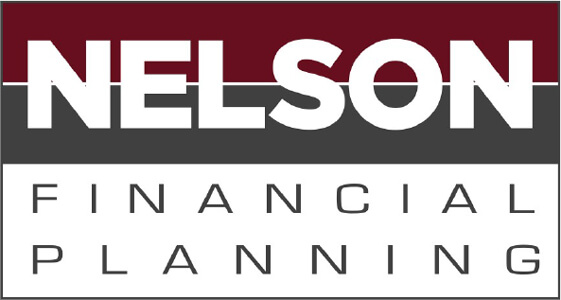Did you know that the Federal Reserve is cutting interest rates during a thriving economy? This unusual approach has sparked questions about its implications for investors and businesses alike. While lower rates can provide opportunities for growth, they may also indicate underlying economic concerns requiring attention. This unique economic approach has raised questions about its implications for investors and businesses alike.
This blog post is based on the Dollars & Sense podcast episode featured below hosted by Joel Garris, Certified Financial Planner. In this episode, Joel discusses key financial topics, including the Federal Reserve’s recent interest rate cuts during a thriving economy, the importance of corporate earnings, the Corporate Transparency Act, and the complexities of Roth IRA conversions. Here are the main takeaways from the episode and what they mean for your financial strategy.
Economic Expansion and Interest Rate Cuts
As we navigate this economic landscape, it’s crucial to remember the fundamentals of investing. The value of companies is ultimately driven by their earnings. While market excitement around future potential can drive stock prices in the short term, long-term valuations depend on a company’s ability to generate profits. This principle is essential as we approach 2025, a year that promises to be filled with opportunities and challenges.

Earnings Matter Most
Amid market shifts, Joel emphasizes the importance of focusing on the fundamentals—corporate earnings. While short-term stock price movements often stem from speculation, long-term success relies on a company’s ability to generate profits. For instance, during previous periods of economic uncertainty, companies with strong earnings histories outperformed their peers, showcasing the importance of resilience.
As we approach 2025, adopting a disciplined investment strategy centered on these fundamentals is critical. Consider diversifying your portfolio to include businesses with robust earnings potential to weather market volatility effectively.
The Corporate Transparency Act: A Guide for Business Owners
The Corporate Transparency Act (CTA), effective in 2024, introduces new regulatory filing requirements for over 33 million small businesses. This includes filing a Beneficial Ownership Information (BOI) report with the Financial Crimes Enforcement Network (FINCEN).
The CTA aims to combat financial crimes by increasing transparency in business ownership. Here’s Joel’s quick checklist to help you comply efficiently:
- Gather identification documents (e.g., passport, driver’s license) for all beneficial owners.
- Visit FINCEN’s website and locate the BOI filing section.
- Complete the form and upload the required documents.
- Review and submit the report.
At Nelson Financial Planning, we completed this process in just over 15 minutes, demonstrating how manageable it can be without resorting to costly third-party services.
We encourage business owners to familiarize themselves with the CTA’s requirements and avoid unnecessary subscription services. Directly filing through FINCEN’s website is both cost-effective and efficient.
Roth Conversions: Opportunities and Pitfalls
Roth IRA conversions—shifting funds from traditional IRAs to Roth IRAs—are gaining popularity but require careful consideration.
While headlines tout the benefits of converting traditional IRAs to Roth IRAs, it’s crucial to approach this decision with caution and thorough analysis. Roth conversions involve paying taxes on the converted amount in the year of conversion, which can lead to unexpected tax implications.
Our experience at Nelson Financial Planning shows that nine out of ten times, Roth conversions may not be as beneficial as they appear. It’s essential to run a full tax analysis to determine if this move makes sense for you rather than just relying on an on-line article or social media video.
The podcast episode highlighted both the potential benefits and significant challenges associated with these conversions.
Benefits of Roth Conversions:
- Tax-Free Growth: Once funds are in a Roth IRA, they grow tax-free, and qualified withdrawals are not taxed.
- No Required Minimum Distributions (RMDs): Unlike traditional IRAs, Roth IRAs do not require withdrawals at a certain age, offering more flexibility in retirement planning.
- Estate Planning Advantages: Roth IRAs can be passed on to heirs without immediate tax implications, making them an attractive tool for legacy planning.
Challenges and Risks:
- Tax Implications: Converting large amounts in a single year can push you into a higher tax bracket, increasing your overall tax burden.
- Medicare and Social Security Costs: Additional taxable income from a conversion may increase Medicare premiums and the portion of Social Security benefits subject to taxation.
- Timing Risks: Converting during a market peak could mean paying taxes on overvalued assets, reducing the long-term benefit of the conversion.
Key Considerations:
- Current and Future Tax Brackets: If you anticipate being in a higher tax bracket during retirement, converting now may be advantageous.
- Cash Flow: Ensure you can afford the taxes without withdrawing from retirement funds to avoid penalties and additional taxes.
- Market Conditions: Converting during a market dip allows you to pay taxes on lower asset values, optimizing the potential for growth.
- Tax Analysis: A detailed tax analysis is essential to understand the ripple effects on other areas of your finances, such as Medicare or Social Security.
Practical Example:
A recent case shared in the podcast illustrated a client who converted $100,000 from a traditional IRA to a Roth IRA during a market high. This resulted in significant tax liabilities and minimal long-term benefit. By spreading conversions over several years or timing conversions during market lows, the financial outcome could have been far more favorable.
The podcast underscores the importance of running a full tax analysis and consulting with a financial professional. For most people, this strategy isn’t a one-size-fits-all solution but rather a tool that requires thoughtful planning to align with personal financial goals.
Key Takeaways for Financial Success
- Monitor Economic Trends: Understand the implications of interest rate cuts and their historical impact on markets. For instance, in similar past scenarios, the average 12-month market return was 18%.
- Focus on Fundamentals: Prioritize investments in companies with strong earnings potential to build a resilient portfolio.
- Navigate Regulatory Changes: Use tools and resources to meet new requirements like the Corporate Transparency Act efficiently and cost-effectively.
- Analyze Roth Conversions Carefully: Perform a full tax analysis and consider market conditions to determine whether converting traditional IRAs to Roth IRAs is advantageous.
Conclusion
This episode of Dollars & Sense provides valuable insights into navigating today’s unique financial landscape. Whether you’re considering a Roth conversion, planning for regulatory compliance, or simply trying to understand interest rate trends, these practical insights can help.
At Nelson Financial Planning, we prioritize helping individuals and businesses make sound financial decisions. Whether you’re exploring Roth conversions or meeting new regulatory requirements, our team is here to guide you. Reach out today for a free consultation to ensure your financial strategies align with your goals.
ABOUT JOEL GARRIS, JD, CFP®
Joel J. Garris, JD, CFP® is a Certified Financial Fiduciary® and the President and CEO of Nelson Financial Planning. With over 20 years of experience, Joel is committed to helping individuals and families achieve financial security through personalized financial strategies. He is the host of Dollars & Sense, Central Florida’s longest-running radio show, originally launched in 1984 by Jack Nelson. Airing live every Sunday from 9:00 to 10:00 a.m. on WFLA 93.1FM/540 AM, the show is also available on YouTube and major podcast platforms, where it has been recognized as one of the Top 25 financial planning podcasts. Joel’s passion for financial education extends to teaching and hosting previous financial programs, including Moneywise on WORL 660 AM and a personal enrichment course through Orange County Public Schools.

- 8 Wonders1
- Bank Investments3
- Beating Inflation1
- Budget for Retirement3
- Corporate Transparency Act2
- Digital Currency1
- Energy Tax Credits1
- ESG Funds1
- Featured Blog0
- Financial Planning9
- Financial Success3
- Importance of Dividends2
- Investment Portfolio4
- IRA1
- Joel Garris1
- Nelson Financial Planning3
- Net Worth Improvement1
- Next Gen Dollars and Sense1
- Pension Plans1
- Retirement “Secure” Act2
- Retirement Regrets4
- Social Security3
- Tax Liability3
- Tax Planning6
- Year-End Tax Changes3






